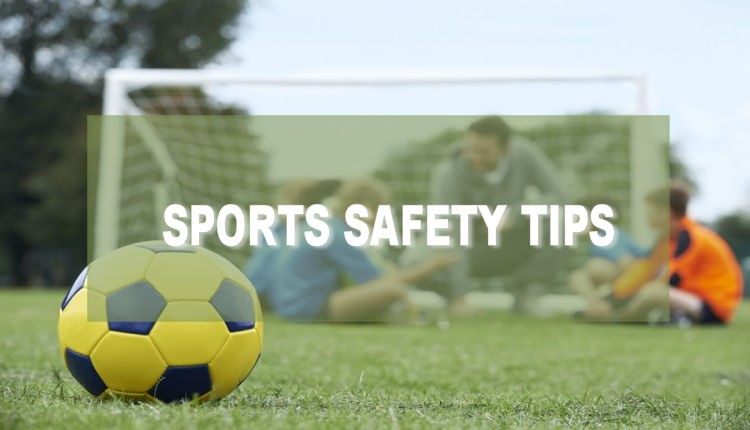
Sports Safety Tips
Taking part in any sport is great for both mental and physical health, you gain huges benefits but, you need to be also mindful of sporting related injuries.
Sporting Safety Tips
We all know that participation in sports and related activities offers tremendous social, emotional, and physical benefits for both adults children.
We know that one of the worst things is being on the sidelines with a sports injury but, are simple things we can do to help reduce these, in the main, preventable injuries – so we call all continue playing the games we love and keeping fit at the same time.
Plan And Prepare For The Demands of Playing a Sport
Before playing any sporting activity, make sure you receive a pre-participation physical exam, or PPE, performed by a doctor, or a nurse practitioner, or a qualified clinician under the supervision of a physician. Whoever performs the exam, the same practices should be followed, including the need for a medical history.
In case of an emergency, provide the organiser or organisation with important information (telephone numbers, next of kin, doctor information, and ANY allergy information before playing in your chosen sport or activity, inform them of history with asthma or other medical conditions that require special attention.
Warm-Up and Stretch Before Games and Practices
The organiser or organsisation should set aside time before every game for participants to warm up properly.
Stretching before practice and games can release muscle tension and help prevent sports-related injuries so start with about 10 minutes of jogging or any light activity, and then gently stretch all major muscle groups, holding for 20 to 30 seconds.
Remember to Hydrate
Learn to recognise the signs and symptoms of dehydration and other forms of heat and exhaustion illness.
When planning to take part in your sport or sporting activity, keep a water bottle handy and stay well-hydrated by drinking plenty of water before, during, and after play. Drink fluids 30 minutes before activity begins and every 15-20 minutes during activity.
If you’re a coach, establish mandatory water breaks throughout practice and games – don’t wait for participants, especially children, to tell you they’re thirsty.
Wear Appropriate Gear For Your Sport or Activity
Use appropriate and properly fitted sports gear to prevent or reduce the severity of injuries, make sure that you use the correct equipment in order to participate in both practices and games.
This may include helmets, shin guards, mouth guards, ankle braces, shoes with rubber cleats, trainers, football boots, and where weather conditions dictate, sunscreen.
Know the Signs and Symptoms of Concussions
Learn the signs and symptoms of a concussion as this information is important for not only you but also for coaches, parents. Any participant with a suspected concussion must be removed from play until evaluated and cleared by a medical professional – when in doubt, sit them out.
Make Rest a Priority
To help avoid overuse injury, take breaks during practices and games ensuring that you inform your coach, parents, or another adult about any pain, injury, or illness you may have during or after any practices or games.
Take responsibility for your injury state, take at least one or two days off each week from your chosen sport.
As A Coach, Be a Prepared
Coaches of any sport should establish safety guidelines that participants and parents can follow during every practice and game, such as creating hydration breaks, encouraging players to sit out if injured, resting if not feeling well, and facilitating a proper warm-up.
It’s also a good idea for coaches to get certified in first-aid and CPR and have a stocked first-aid kit handy at all practices and games and should consider increasing their sports skills and knowledge.
As A Spectator, Parent or Trainer, Be a Supportive
Learn ways to help your friend, partner or child stay injury-free and healthy while playing any sports even if it’s just an impromptu football knockabout. Even if you are not active in any sporting activity, the knowledge of how to act could be crucial.
So there you have it, a simple, easy-peasy way to refill your ink cartridges, save a ton of money at the same time and save the environment from single-use plastic waste!
NEWSLETTER
Be sure to subscribe to our periodical newsletter so whenever we have any sport or activity-related news or advertisers, you’ll be the first to know!
